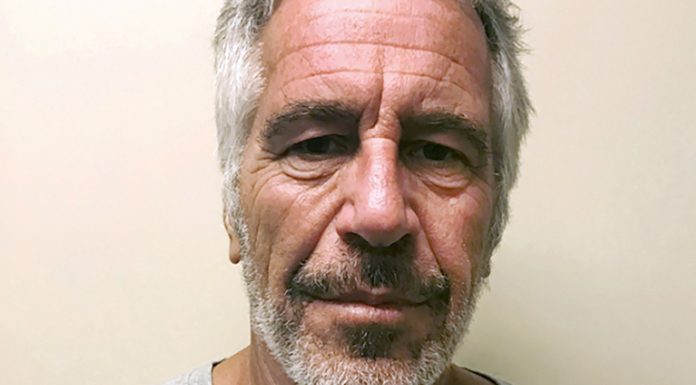(Ken Silva, Headline USA) Justice Department Inspector General Michael Horowitz released Tuesday his much-anticipated report on millionaire sex criminal Jeffrey Epstein’s mysterious August 9, 2019, death—finding numerous instances of negligence by guards and other prison personnel, but stopping short of alleging criminality.
Horowitz also reinforced government’s narrative that Epstein did, in fact, kill himself at the now shuttered Metropolitan Correctional Center in New York.
The problems Horowitz outlined in his report have already been widely documented, for the most part.
The DOJ inspector general recounted how Epstein originally tried killing himself on July 23. At that point, prison officials should have ensured that he always had a cellmate, Horowitz said.
But on the day before Epstein’s death, his cellmate was transferred to another jail. Horowitz found that BOP officials interviewed for his report “lacked candor” in their explanations for why Epstein was not provided with another cellmate, which allowed him to allegedly kill himself with no one there to call for help.
Horowitz also blasted the prison guards for failing to conduct routine cell checks. Had the guards conducted proper cell inspections, Horowitz said, they would’ve found Epstein had excess linens he used to allegedly hang himself.
Horowitz’s investigation, the last of several official inquiries into Epstein’s death, echoed previous findings that some members of the jail staff involved in guarding Epstein were overworked.
He identified 13 employees with performance failures and recommended possible criminal charges against four workers. Only the two workers assigned to guard Epstein the night he died were charged, avoiding jail time in a plea deal after admitting to falsifying logs.
Along with human errors, Horowitz also discussed the malfunctioning cameras that were supposed to be recording activity around Epstein’s cell.
Few of the cameras in the area where Epstein was housed were making recordings of the images they captured due to a mechanical failure July 29. The prison had contracted for a camera system upgrade three years before his death, but it had not been completed, in part due to serious staffing shortages, according to Horowitz.
The failures are deeply troubling not only because they allowed Epstein’s suicide but also because they “led to questions about the circumstances surrounding Epstein’s death and effectively deprived Epstein’s numerous victims of the opportunity to seek justice,” Horowitz said.
However, the inspector general said his investigators found no evidence to suggest anything other than suicide, echoing the findings of New York City’s medical examiner’s office, which determined Epstein killed himself, and a separate FBI investigation that found no crimes directly associated with the death.
No physical evidence supported any of the many conspiracy theories surrounding Epstein’s death, Horowitz concluded, and none of the video captured from the cameras that were recording showed any indication of anyone else in the cell. Investigators probed for possible money changing hands involving guards but found no evidence of that, either.
Responding to the findings, the Bureau of Prisons said it has accepted all eight of Horowitz’s recommendations, has updated its suicide-watch process and will apply other lessons learned “to the broader BOP correctional landscape.”
The Associated Press contributed to this report.
Ken Silva is a staff writer at Headline USA. Follow him at twitter.com/jd_cashless.

